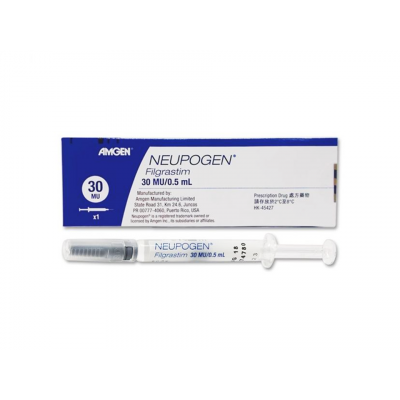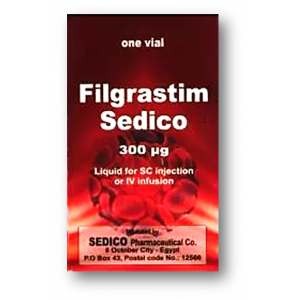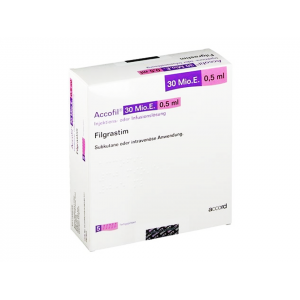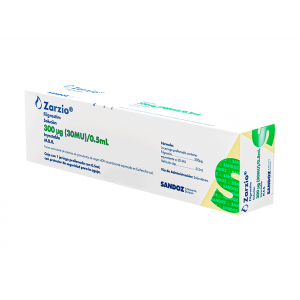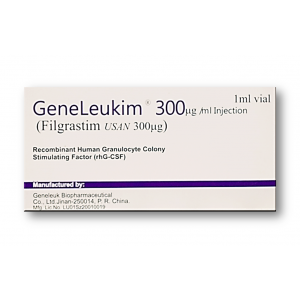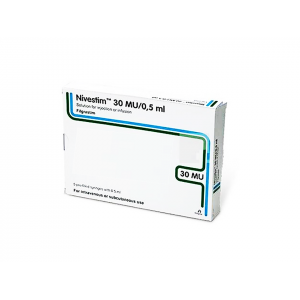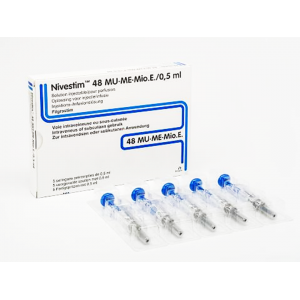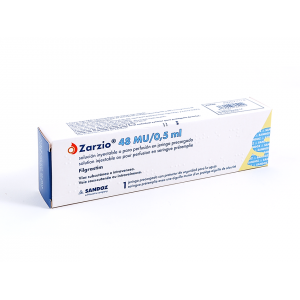- Anti-hestaminic & Respiratory Drugs (20)
- Anti-inflammatory Drugs (192) +-
- Baby & Mom (1314) +-
- Baby & Mom > Bath, skin & Hair > Skin Care > wibes (52)
- Beauty (2918) +-
- Beauty > Skin Care > whitening (274)
- Chemotherapy & Immune Response (882) +-
- Chemotherapy & Immune Response > ANTI-FUNGAL (11)
- Chemotherapy & Immune Response > Chemotherapeutic Agents > Hormone Antagonists >Enzyme Inhibitors (289)
- CIRCULATORY DISTURBANCE AGENTS (24)
- Diet & Fitness Products (280) +-
- DRUG AFFECTING CENTRAL NERVOUS SYSTEM (191)
- HEMATOLOGY (39)
-
Medical Supplies (503)
+-
- Chemicals & Disinfectants (19)
- Dental Supplies (31)
- Devices & Instruments (10)
- Diabetic Supplies (121)
- General Medical Supplies (21)
- I.V & Medical Solution (0)
- Intensive Care Unit & Anesthesia Supplies (0)
- KIDNEY UNIT SUPPLIES (21)
- Lab Supplies (3)
- Miscellaneous (21)
- Neonatal Unit Supplies (0)
- Operation Room Supplies (2)
- Sanitary (5)
- Sterilization Supplies (0)
- Surgical Sutures (4)
- Syringes (3)
-
Medicines & Health (2602)
+-
- Allergy & Sinus (95)
- Children's Health Care (54)
- Cough, Cold & Flu (277)
- Digestive Health & Nausea (225)
- Ear, Nose & Throat Care (179)
- Eye Care (117)
- Feminine Care (321)
- Foot Care (4)
- Orthopaedic Appliances (0)
- Pain Relief & Management (237)
- Pill Organizer (2)
- Skin Treatments (785)
- Sleep & Snoring Aids (2)
- Support & Braces (7)
- Medicines & health > Gout releif (42)
- Natural & Organic Products (81) +-
- OTC > Analgesics > Anti-inflammatory Drugs (44)
-
Personal Care (3199)
+-
- Bath & Body (264)
- Deodorant & Anti-perspirants (182)
- Ear, Nose & Throat Care (175)
- Eye Care (123)
- Feminine Care (370)
- Foot Care (12)
- Hair Care (472)
- Home Tests & Monitorings (14)
- Incontinence (7)
- Lip Care (22)
- Massage & Relaxation (17)
- Natural & Organic Personal Care (7)
- Oral Care (88)
- Pregnancy & Fertility (64)
- Shaving & Grooming (65)
- Sun Care (78)
-
Prescription Drugs (2870)
+-
- Analgesics (181)
- Cardiovascular System (374)
- Drugs Affecting Musculoskeletal System (65)
- Drugs Used In Infections (56)
- Ear & Nose Drugs (2)
- Endocrine System (176)
- Gastrointestinal Tract (242)
- Gastrointestinal Tract > Hepatology > Liver treatment (61)
- GYNECOLOGY (2)
- Miscellaneous (11)
- NEPHROLOGY > URINARY SYSTEM > RENAL DISORDERS > URINARY TRACT DISORDERS (46)
- NEUROLOGY (222)
- Nutrients & Blood Electrolytes (2)
- Respiratory System (154)
- SKIN > NAILS > HAIR > TOPICAL PREPARATIONS (68)
- Vaccines (1)
- Prescription drugs > Cardiovascular system > Anti-hypertension drugs (242)
- Sexual Wellness (301) +-
- Vitamins & Minerals Supplements (1197) +-
Ex Tax: 1,294EGP
Example
You can return the product within 14 days of purchase.
ReturnsYou can return the product within 14 days of purchase.

NEUPOGEN 30 MIU / 0.5 ML ( FILGRASTIM ) PREFILLED SYRINGE
Package leaflet: Information for the user
Neupogen 30 MU (0.3 mg/ml) solution for injection
filgrastim
Read all of this leaflet carefully before you start using this medicine because it contains important information for you.
Keep this leaflet. You may need to read it again.
If you have any further questions, ask your doctor, nurse or pharmacist.
This medicine has been prescribed for you only. Do not pass it on to others. It may harm them, even if their signs of illness are the same as yours.
If you get any side effects talk to your doctor, pharmacist or nurse. This includes any possible side effects not listed in this leaflet. See section 4.
What is in this leaflet
1. What Neupogen is and what it is used for
2. What you need to know before you use Neupogen
3. How to use Neupogen
4. Possible side effects
5. How to store Neupogen
6. Contents of the pack and other information
1. What Neupogen is and what it is used for
Neupogen is a white blood cell growth factor (granulocyte colony stimulating factor) and belong to a group of medicines called cytokines. Growth factors are proteins that are produced naturally in the body but they can also be made using biotechnology for use as a medicine. Neupogen works by encouraging the bone marrow to produce more white blood cells.
A reduction in the number of white blood cells (neutropenia) can occur for several reasons and makes your body less able to fight infection. Neupogen stimulates the bone marrow to produce new white cells quickly.
Neupogen can be used:
to increase the number of white blood cells after treatment with chemotherapy to help prevent infections;
to increase the number of white blood cells after a bone marrow transplant to help prevent infections;
before high-dose chemotherapy to make the bone marrow produce more stem cells which can be collected and given back to you after your treatment. These can be taken from you or from a donor. The stem cells will then go back into the bone marrow and produce blood cells;
to increase the number of white blood cells if you suffer from severe chronic neutropenia to help prevent infections;
in patients with advanced HIV infection which will help reduce the risk of infections.
2. What you need to know before you use Neupogen
Do not use Neupogen
if you are allergic to filgrastim or any of the other ingredients of this medicine (listed in section 6).
Warnings and precautions
Talk to your doctor, pharmacist or nurse before using Neupogen.
Please tell your doctor before starting treatment if you have:
sickle cell anaemia, as Neupogen may cause sickle cell crisis.
osteoporosis (bone disease).
Please tell your doctor immediately during treatment with Neupogen, if you:
have sudden signs of allergy such as rash, itching or hives on the skin, swelling of the face, lips, tongue or other parts of the body, shortness of breath, wheezing or trouble breathing as these could be signs of a severe allergic reaction (hypersensitivity).
experience puffiness in your face or ankles, blood in your urine or brown-coloured urine or you notice you urinate less than usual (glomerulonephritis).
get left upper belly (abdominal) pain, pain below the left rib cage or at the tip of your left shoulder (these may be symptoms of an enlarged spleen (splenomegaly), or possibly rupture of the spleen).
notice unusual bleeding or bruising (these may be symptoms of a decrease in blood platelets (thrombocytopenia), with a reduced ability of your blood to clot).
Inflammation of aorta (the large blood vessel which transports blood from the heart to the body) has been reported rarely in cancer patients and healthy donors. The symptoms can include fever, abdominal pain, malaise, back pain and increased inflammatory markers. Tell your doctor if you experience those symptoms.
Loss of response to filgrastim
If you experience a loss of response or failure to maintain a response with filgrastim treatment, your doctor will investigate the reasons why including whether you have developed antibodies which neutralise filgrastim’s activity.
Your doctor may want to monitor you closely, see section 4 of the package leaflet.
If you are a patient with severe chronic neutropenia, you may be at risk of developing cancer of the blood (leukaemia, myelodysplastic syndrome (MDS)). You should talk to your doctor about your risks of developing cancers of the blood and what testing should be done. If you develop or are likely to develop cancers of the blood, you should not use Neupogen, unless instructed by your doctor.
If you are a stem cell donor, you must be aged between16 and 60 years.
Take special care with other products that stimulate white blood cells
Neupogen is one of a group of products that stimulate the production of white blood cells. Your healthcare professional should always record the exact product you are using.
Other medicines and Neupogen
Tell your doctor or pharmacist if you are taking, have recently taken or might take any other medicines.
Pregnancy and breast-feeding
Neupogen has not been tested in pregnant or breast-feeding women.
Neupogen is not recommended during pregnancy.
It is important to tell your doctor if you:
are pregnant or breast-feeding;
think you may be pregnant; or
are planning to have a baby.
If you become pregnant during Neupogen treatment, please inform your doctor.
Unless your doctor directs you otherwise, you must stop breast feeding if you use Neupogen.
Driving and using machines
Neupogen may have a minor influence on your ability to drive and use machines. This medicine may cause dizziness. It is advisable to wait and see how you feel after taking Neupogen and before driving or operating machinery.
Neupogen contains sodium
Neupogen contains less than 1 mmol (23 mg) sodium per 0.3 mg/ml, that is to say essentially ‘sodium free’.
Neupogen contains sorbitol
This medicine contains 50 mg sorbitol in each ml.
Sorbitol is a source of fructose. If you (or your child) have hereditary fructose intolerance (HFI), a rare genetic disorder, you (or your child) must not receive this medicine. Patients with HFI cannot break down fructose, which may cause serious side effects.
You must tell your doctor before receiving this medicine if you (or your child) have HFI or if your child can no longer take sweet foods or drinks because they feel sick, vomit or get unpleasant effects such as bloating, stomach cramps or diarrhoea.
3. How to use Neupogen
Always use this medicine exactly as your doctor has told you. Check with your doctor, nurse or pharmacist if you are not sure.
How is Neupogen given and how much should I take?
Neupogen is usually given as a daily injection into the tissue just under the skin (known as a subcutaneous injection). It can also be given as a daily slow injection into the vein (known as an intravenous infusion). The usual dose varies depending on your illness and weight. Your doctor will tell you how much Neupogen you should take.
Patients having a bone marrow transplant after chemotherapy:
You will normally receive your first dose of Neupogen at least 24 hours after your chemotherapy and at least 24 hours after receiving your bone marrow transplant.
How long will I have to take Neupogen?
You will need to take Neupogen until your white blood cell count is normal. Regular blood tests will be taken to monitor the number of white blood cells in your body. Your doctor will tell you how long you will need to take Neupogen.
Use in children
Neupogen is used to treat children who are receiving chemotherapy or who suffer from severe low white blood cell count (neutropenia). The dosing in children receiving chemotherapy is the same as for adults.
If you use more Neupogen than you should
If you think you have had more than you should, contact your doctor as soon as possible.
If you forget to use Neupogen
If you have missed an injection, contact your doctor as soon as possible.
If you have any further questions on the use of this product, ask your doctor, nurse or pharmacist.
4. Possible side effects
Like all medicines, this medicine can cause side effects, although not everybody gets them.
Please tell your doctor immediately during treatment:
if you experience an allergic reaction including weakness, drop in blood pressure, difficulty breathing, swelling of the face (anaphylaxis), skin rash, itchy rash (urticaria), swelling of the face lips, mouth, tongue or throat (angioedema) and shortness of breath (dyspnoea).
if you experience a cough, fever and difficulty breathing (dyspnoea) as this can be a sign of Acute Respiratory Distress Syndrome (ARDS).
if you experience kidney injury (glomerulonephritis). Kidney injury has been seen in patients who received Neupogen. Call your doctor right away if you experience puffiness in your face or ankles, blood in your urine or brown-coloured urine or you notice you urinate less than usual.
if you have any of the following or combination of the following side effects:
swelling or puffiness, which may be associated with passing water less frequently, difficulty breathing, abdominal swelling and feeling of fullness, and a general feeling of tiredness. These symptoms generally develop in a rapid fashion.
These could be symptoms of a condition called “Capillary Leak Syndrome” which causes blood to leak from the small blood vessels into your body and needs urgent medical attention.
if you have a combination of any of the following symptoms:
fever, or shivering, or feeling very cold, high heart rate, confusion or disorientation, shortness of breath, extreme pain or discomfort and clammy or sweaty skin.
These could be symptoms of a condition called “sepsis” (also called "blood poisoning"), a severe infection with whole-body inflammatory response which can be life threatening and needs urgent medical attention.
if you get left upper belly (abdominal) pain, pain below the left rib cage or pain at the tip of your shoulder, as there may be a problem with your spleen (enlargement of the spleen (splenomegaly) or rupture of the spleen).
if you are being treated for severe chronic neutropenia and you have blood in your urine (haematuria). Your doctor may regularly test your urine if you experience this side effect or if protein is found in your urine (proteinuria).
A common side effect of Neupogen use is pain in your muscles or bones (musculoskeletal pain), which can be helped by taking standard pain relief medicines (analgesics). In patients undergoing a stem cell or bone marrow transplant, Graft versus host disease (GvHD) may occur- this is a reaction of the donor cells against the patient receiving the transplant; signs and symptoms include rash on the palms of your hands or soles of your feet and ulcer and sores in your mouth, gut, liver, skin, or your eyes, lungs, vagina and joints.
In normal stem cell donors an increase in white blood cells (leukocytosis) and a decrease of platelets may be seen this reduces the ability of your blood to clot (thrombocytopenia), these will be monitored by your doctor.
Very common side effects (may affect more than 1 in 10 people):
decrease of platelets which reduces the ability of blood to clot (thrombocytopenia)
low red blood cell count (anaemia)
headache
diarrhoea
vomiting
nausea
unusual hair loss or thinning (alopecia)
tiredness (fatigue)
soreness and swelling of the digestive tract lining which runs from the mouth to the anus (mucosal inflammation)
fever (pyrexia)
Common side effects (may affect up to 1 in 10 people):
inflammation of the lung (bronchitis)
upper respiratory tract infection
urinary tract infection
decreased appetite
trouble sleeping (insomnia)
dizziness
decreased feeling of sensitivity, especially in the skin (hypoaesthesia)
tingling or numbness of the hands or feet (paraesthesia)
low blood pressure (hypotension)
high blood pressure (hypertension)
cough
coughing up blood (haemoptysis)
pain in your mouth and throat (oropharyngeal pain)
nose bleeds (epistaxis)
constipation
oral pain
enlargement of the liver (hepatomegaly)
rash
redness of the skin (erythema)
muscle spasm
pain when passing urine (dysuria)
chest pain
pain
generalised weakness (asthenia)
generally feeling unwell (malaise)
swelling in the hands and feet (oedema peripheral)
increase of certain enzymes in the blood
changes in blood chemistry
transfusion reaction
Uncommon side effects (may affect up to 1 in 100 people):
increase in white blood cells (leukocytosis)
allergic reaction (hypersensitivity)
rejection of transplanted bone marrow (graft versus host disease)
high uric acid levels in the blood, which may cause gout (hyperuricaemia) (Blood uric acid increased)
liver damage caused by blocking of the small veins within the liver (veno-occlusive disease)
lungs do not function as they should, causing breathlessness (respiratory failure)
swelling and/or fluid in the lungs (pulmonary oedema)
inflammation of the lungs (interstitial lung disease)
abnormal x-rays of the lungs (lung infiltration)
bleeding from the lung (pulmonary haemorrhage)
lack of absorption of oxygen in the lung (hypoxia)
bumpy skin rash (rash macuo-papular)
disease which causes bones to become less dense, making them weaker, more brittle and likely to break (osteoporosis)
injection site reaction
Rare side effects (may affect up to 1 in 1,000 people):
severe pain in the bones, chest, gut or joints (sickle cell anaemia with crisis)
sudden life-threatening allergic reaction (anaphylactic reaction)
pain and swelling of the joints, similar to gout (pseudogout)
a change in how your body regulates fluids within your body and may result in puffiness (fluid volume disturbances)
inflammation of the blood vessels in the skin (cutaneous vasculitis)
plum-coloured, raised, painful sores on the limbs and sometimes the face and neck with a fever (Sweets syndrome)
worsening of rheumatoid arthritis
unusual change in the urine
bone density decreased
Inflammation of aorta (the large blood vessel which transports blood from the heart to the body), see section 2
Reporting of side effects:
If you get any side effects, talk to your doctor or nurse. This includes any possible side effects not listed in this leaflet. You can also report side effects directly (see details below). By reporting side effects you can help provide more information on the safety of this medicine.
United Kingdom
Yellow Card Scheme
Website: www.mhra.gov.uk/yellowcard
or search for MHRA Yellow Card in the Google Play or Apple App Store
Ireland
HPRA Pharmacovigilance
Earlsfort Terrace
IRL - Dublin 2
Tel: +353 1 6764971
Fax: +353 1 6762517
Website: www.hpra.ie
e-mail: medsafety@hpra.ie
Malta
ADR Reporting
Website: www.medicinesauthority.gov.mt/adrportal
5. How to store Neupogen
Keep this medicine out of the sight and reach of children.
Store in a refrigerator (2°C – 8°C).
Keep the container in the outer carton in order to protect from light.
Accidental freezing will not harm Neupogen.
Do not use this medicine after the expiry date which is stated on the vial label and carton after EXP. The expiry date refers to the last day of that month.
Do not use this medicine if you notice discolouration, cloudiness or particles, it should be a clear, colourless liquid.
Do not throw away any medicines via wastewater or household waste. Ask your pharmacist how to throw away medicines no longer required. These measures will help protect the environment.
6. Contents of the pack and other information
What Neupogen contains
The active substance is filgrastim 30 million units in a 1 ml vial (0.3 mg/ml).
The other ingredients are sodium acetate, sorbitol (E420), polysorbate 80, water for injections.
What Neupogen looks like and contents of the pack
Neupogen is a clear colourless solution for injection (injection)/concentrate for solution for infusion (sterile concentrate) in a vial.
Neupogen is available in packs of one or five vials. Not all pack sizes may be marketed.
Marketing Authorisation Holder and Manufacturer
Amgen Europe B.V.
Minervum 7061
4817 ZK Breda
The Netherlands
Marketing Authorisation Holder
Amgen Europe B.V.
Minervum 7061
4817 ZK Breda
The Netherlands
Manufacturer
Amgen Technology (Ireland) Unlimited Company
Pottery Road
Dun Laoghaire
Co Dublin
Ireland
Manufacturer
Amgen NV
Telecomlaan 5-7
1831 Diegem
Belgium
This medicine is marketed in the European Economic Area under the name Neupogen, except in Cyprus, Greec and Italy where it is called Granulokine.
Write a review
Your Name:Your Review: Note: HTML is not translated!
Rating: Bad Good
Enter the code in the box below:

